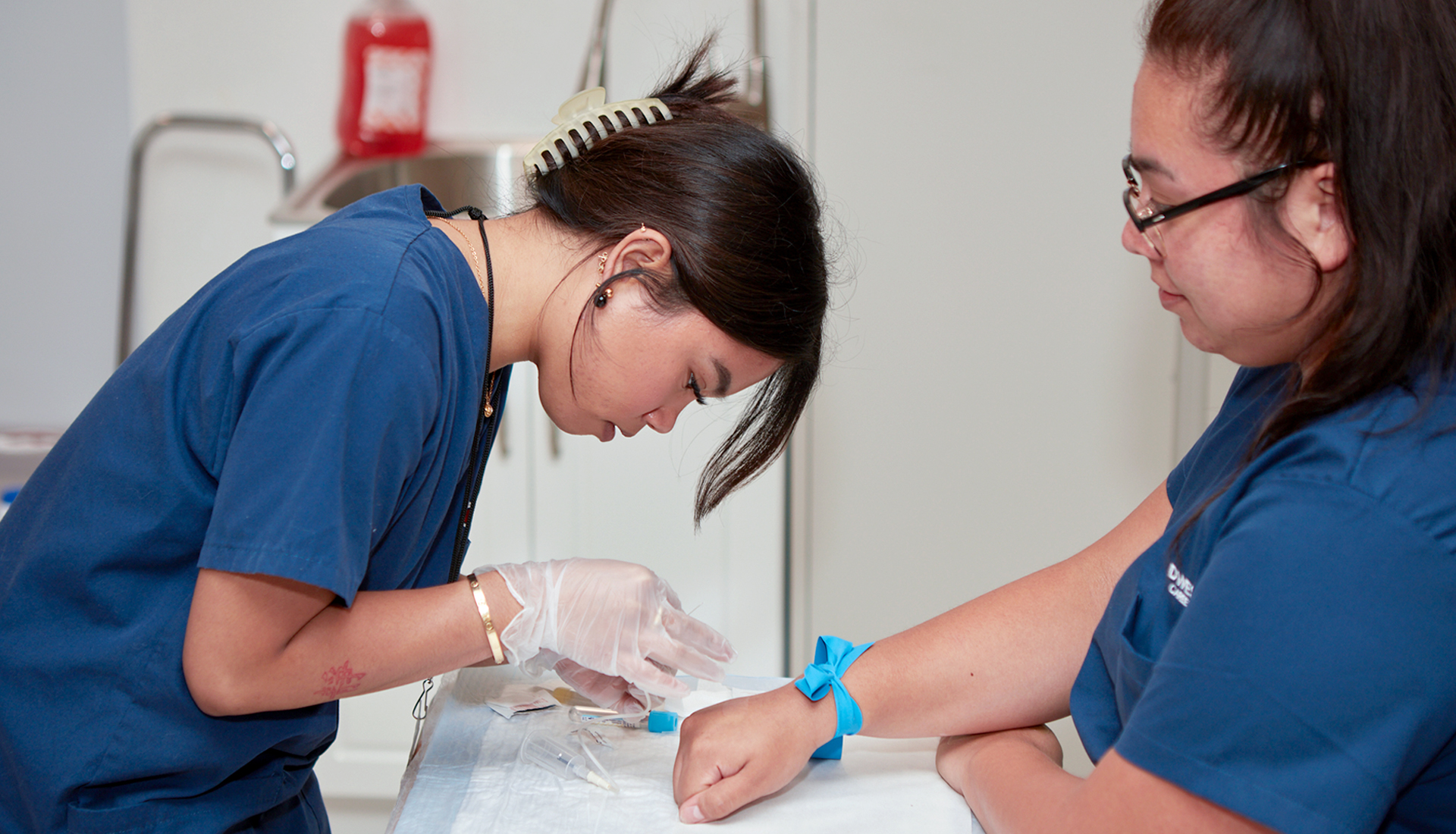Top-Rated Northeast Medical Institute Phlebotomy Training Stamford: Hands-On Discovering Experience
Top-Rated Northeast Medical Institute Phlebotomy Training Stamford: Hands-On Discovering Experience
Blog Article
Critical Elements to Think About When Choosing one of the most Suitable Medical School Educational Program for You
Picking one of the most fitting medical college educational program is an essential decision that can considerably influence your academic journey and future job course. As striving medical professionals, the choice of curriculum need to align with your personal learning design and career ambitions. Nevertheless, beyond these preliminary considerations, different vital aspects enter into play when making this selection. By checking out the subtleties of mentor techniques, educational program flexibility, and scientific direct exposure opportunities, a much more detailed understanding of what makes a curriculum appropriate for you emerges. Let's check out these important elements that can form your medical education and learning and eventually, your professional trajectory.
Personal Discovering Style

Medical schools that provide diverse mentor approaches and sources can accommodate different finding out designs, cultivating a vibrant and inclusive instructional setting. Ultimately, understanding personal discovering preferences encourages students to make educated choices concerning their clinical education, setting a solid foundation for their future occupations in medical care.
Profession Purposes Placement
Moreover, straightening profession goals with the clinical institution curriculum can also enhance inspiration and engagement throughout the educational journey. When trainees see the direct importance of their coursework to their future profession, they are extra likely to stay specialized and concentrated to their researches. As a result, when picking a medical college educational program, it is critical to very carefully consider how well it straightens with one's job objectives to guarantee a successful and satisfying professional path.
Training Methodologies
Considering the positioning of profession goals with the picked medical institution educational program, an examination of the training methodologies utilized comes to be essential in forming the learning experience. The performance of a medical institution educational program heavily relies on the training methods made use of by the organization. Various training approaches, such as lectures, little seminar, problem-based knowing, simulation-based training, and hands-on scientific experience, can significantly impact exactly how well students comprehend and maintain information.
Lectures are a standard however still typically used method for providing content to a huge group of pupils successfully. Tiny group conversations foster collaboration, essential thinking, and communication abilities amongst students. Problem-based discovering encourages energetic participation, self-directed knowing, and analytical capabilities. Simulation-based training allows pupils to exercise clinical abilities in a regulated environment prior to interacting with genuine people. Hands-on scientific experience offers a firsthand understanding of client care and clinical methods.
When picking a clinical college curriculum, striving pupils should think about the mentor methodologies utilized to make certain that their discovering choices and staminas straighten with the educational approach of the organization.
Educational Program Flexibility
When examining medical institution programs, examining the extent of educational program adaptability is vital for potential students seeking a customized instructional experience. Educational program versatility describes the degree to which trainees can personalize their discovering courses within the medical institution educational program. An educational program that uses adaptability enables trainees to pursue their passions, emphasis on areas where they need more assistance, and take part in finding out experiences that line up with their job goals.

Potential clinical trainees must consider how a medical institution's educational program adaptability lines up with their understanding choices, job aspirations, and personal objectives. By picking a program that offers the appropriate equilibrium of framework and adaptability, trainees can maximize their see here now instructional experience and prepare themselves for successful professions in medication.
Clinical Exposure Opportunities
Exploring the functional application of clinical expertise, medical exposure chances play a crucial role in forming a comprehensive clinical education. These possibilities provide students with invaluable hands-on experience in genuine healthcare setups, enabling them to bridge the gap between theory and method. When considering clinical institution curricula, the high quality and quantity of professional direct exposure should be meticulously reviewed.
Reliable clinical direct exposure needs to offer a varied variety of experiences throughout numerous specialties, guaranteeing that pupils are exposed to various medical situations and client demographics. Exposure to outpatient clinics, inpatient wards, medical movie theaters, and emergency situation departments can help students establish a well-rounded understanding of various aspects of medical care shipment. Furthermore, opportunities for community-based care and interactions with underserved populaces msc civil engineering can cultivate a much deeper recognition for the social factors of wellness.
Moreover, the visibility of supportive faculty and coaches throughout these medical experiences can significantly enhance the understanding process. Faculty advice and useful responses can assist pupils reflect on their clinical encounters, recognize locations for renovation, and improve their professional abilities and decision-making abilities (Northeast Medical Institute CNA Classes Near me Stamford). In general, robust medical exposure possibilities are crucial for preparing future medical professionals to supply quality client treatment effectively
Conclusion
To conclude, when picking a clinical school curriculum, it is important to consider your individual understanding style, placement with career goals, teaching methodologies, educational program adaptability, and medical exposure chances. These aspects play an important role in figuring out the most appropriate program for your expert and instructional growth. Make certain to extensively examine each facet to make a notified choice that will certainly best support your growth in the medical area.
Comprehending one's individual learning design is crucial when choosing a medical institution curriculum. By determining one's learning style early on, aspiring clinical students can link purposefully pick a curriculum that caters to their strengths, inevitably improving their understanding experience and academic success.
When assessing clinical college programs, analyzing the extent of curriculum flexibility is essential for possible students seeking a customized academic experience. Educational program adaptability refers to the level to which trainees can personalize their understanding courses within the medical institution educational program.In conclusion, when selecting a clinical college educational program, it is necessary to consider your personal discovering design, alignment with profession purposes, educating approaches, curriculum versatility, and professional direct exposure opportunities.
Report this page